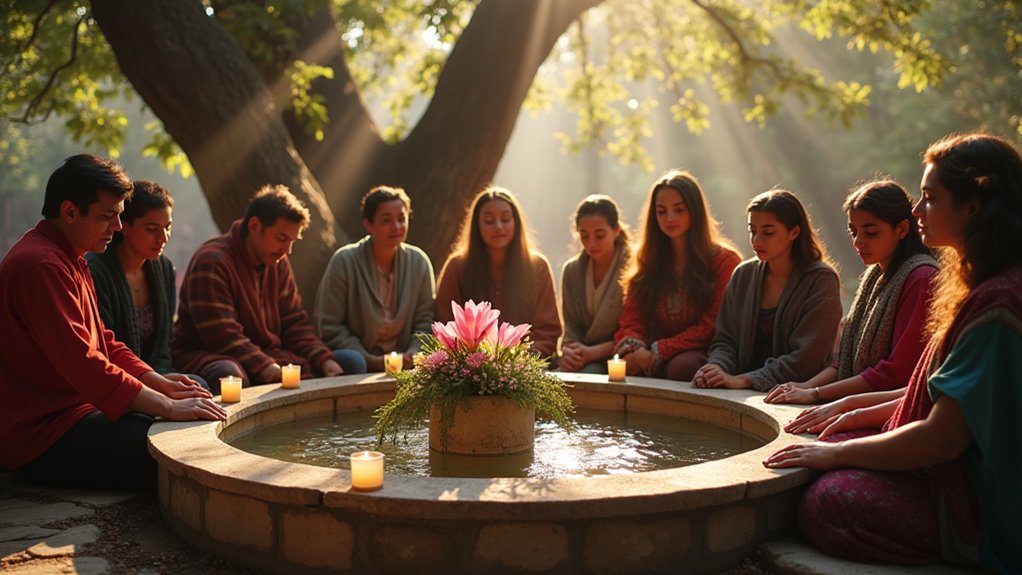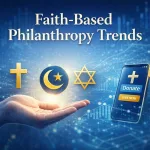
Faith and mental health: what research actually says (and what it doesn’t)
Many wonder how faith molds our minds and emotions, revealing surprising psychological effects that influence resilience and well-being in unexpected ways.
Faith in community is more than a shared belief, it is a powerful force that shapes relationships, nurtures resilience, and strengthens the social fabric of entire groups. Across cultures and religions, communities rooted in faith offer individuals a place to belong, grow, and find support. In today’s rapidly changing world, this sense of connection has become more important than ever. Faith-based communities provide unity in diversity, offer emotional comfort, and encourage people to practice compassion and service in meaningful ways.

But what makes faith in community so transformative? Why do people feel more grounded, supported, and empowered when they connect through shared spiritual values?
This in-depth guide explores the many ways faith strengthens community life, from emotional support and moral development to leadership, charity, and inclusivity.
One of the strongest benefits of faith in community is its ability to build deep social bonds. Shared beliefs bring people together, transcending cultural, linguistic, and generational differences. Whether through traditional religions or modern spiritual movements, communities thrive when their members unite around common values, rituals, and teachings.
Activities such as prayer, meditation, singing, seasonal festivals, and spiritual gatherings create rhythms of togetherness. These shared practices provide:
Across faith traditions, spiritual rituals reinforce community values, giving people a way to express gratitude, mark important life transitions, and support one another.
As people continue to gather, cooperate, and celebrate together, shared beliefs evolve into shared identity. This sense of unity fosters compassion, cooperation, and mutual respect. Whether in small spiritual groups or large religious organizations, shared beliefs help maintain social stability and emotional harmony, building a foundation where individuals feel safe, supported, and connected.
Faith in community plays a powerful role in providing emotional support during life’s most difficult seasons. When individuals struggle with loss, stress, anxiety, or uncertainty, faith-based networks offer comfort and companionship that extend far beyond simple advice.
Many people turn to spirituality when seeking reassurance or meaning. Being surrounded by a supportive community allows individuals to share their struggles without fear of judgment. This emotional connection helps:
Spiritual companionship creates a safe space for people to express vulnerability, seek guidance, and find renewed hope.
Spiritual teachings often encourage patience, courage, and the belief that challenges can lead to growth. These values help individuals cope more effectively with crisis or loss. Combined with community encouragement, faith becomes a steady foundation during times of emotional strain.
For anyone exploring religion or spirituality, faith as a source of emotional support can lead to profound healing and clarity.
Faith in community inspires action. Many religious and spiritual traditions emphasize compassion, charity, and service as essential parts of living out one’s beliefs.
Community members often participate in activities such as:
These acts of service do more than meet immediate needs—they foster empathy, humility, and responsibility. Service becomes a spiritual path in itself, reinforcing the idea that helping others is a meaningful expression of faith.
When faith-based groups engage in charitable initiatives, they contribute to social development and improve overall community well-being. These efforts build bridges between people of different backgrounds and promote cooperation across social boundaries.
Through these acts of service and charity, spirituality becomes a force for real-world impact, helping communities grow stronger, kinder, and more unified.
True spiritual communities recognize the value of diversity. As the world becomes more interconnected, many faith groups intentionally create inclusive spaces where people of all cultures, backgrounds, and beliefs feel respected and welcomed.
Interfaith discussions help reduce barriers, correct misconceptions, and promote understanding. Inclusive communities encourage:
This inclusivity strengthens the community by honoring different perspectives and recognizing the shared human desire for meaning, belonging, and connection.
Communities that embrace diversity naturally cultivate harmony. By listening to each other’s experiences and acknowledging different spiritual journeys, people learn to celebrate both individuality and collective values. This balance enhances mutual respect and supports peaceful coexistence.
Faith communities often play a vital role in shaping moral and ethical values. Through teachings, communal expectations, and shared beliefs, people learn how to navigate life with integrity, consideration, and purpose.
Religious and spiritual frameworks provide guidance for daily life, helping individuals understand:
These values help regulate behavior, build trust, and create a stable environment where people can thrive.
Community settings reinforce moral lessons through shared experiences, group support, and collective reflection. This makes ethical principles not just abstract ideas but lived values that strengthen relationships and promote communal well-being.
Faith and resilience form a powerful partnership during difficult times. In moments of crisis, whether personal, social, or global, faith offers hope and a sense of direction.
Simple but meaningful spiritual practices help individuals remain grounded:
These practices help calm the mind, steady emotions, and bring clarity when life feels overwhelming.
During crises, faith communities often mobilize quickly: offering comfort, providing resources, and supporting those most affected. This collective support enables individuals to recover more quickly and encourages perseverance even under immense stress.
Faith frequently ignites leadership. Many community leaders are motivated by a deep sense of spiritual responsibility to uplift others, promote justice, and address local needs.
Faith-driven leaders inspire participation by modeling compassion, service, and humility. Their guidance encourages:
Such leadership strengthens communities and helps members feel empowered to contribute.
When faith motivates collective action, individuals come together not only to solve immediate problems but also to build lasting solutions. This type of leadership creates resilient, thriving communities grounded in shared values.
Faith in community is a remarkable force that brings people together through shared beliefs, practices, and values. It nurtures emotional support, strengthens moral foundations, and encourages acts of service that uplift entire neighborhoods. Faith also promotes inclusivity and diversity, allowing people from different backgrounds to connect with respect and understanding.
During challenging times, faith inspires resilience, courage, and hope. It also ignites leadership and civic engagement, fostering communities that are compassionate, active, and united.
In every tradition, ancient or modern, faith in community helps people grow, belong, and thrive together. It offers not only spiritual meaning but a deeper connection to humanity and purpose.

Many wonder how faith molds our minds and emotions, revealing surprising psychological effects that influence resilience and well-being in unexpected ways.

Faith-based philanthropy trends reveal a reality that is often misunderstood: charitable giving rooted in faith has never been static. From the earliest forms of communal offerings in ancient civilizations to structured religious obligations such as tithing, zakat, and tzedakah, faith-based generosity has continuously evolved alongside social, economic, and technological transformations. Introduction: Faith at the Crossroads […]

A deep exploration of how faith shapes moral choices reveals complexities that challenge simple answers and invite thoughtful reflection.

Understanding faith across religions reveals shared truths and unique beliefs—unlocking mysteries that connect humanity in unexpected ways. Discover more inside.

Struggling between conviction and uncertainty, faith and doubt intertwine in ways that challenge beliefs and reveal unexpected spiritual depths. Discover the paradox within.

Groundbreaking ideas from modern philosophers challenge how faith shapes knowledge—discover seven insights that redefine belief and reason in unexpected ways.